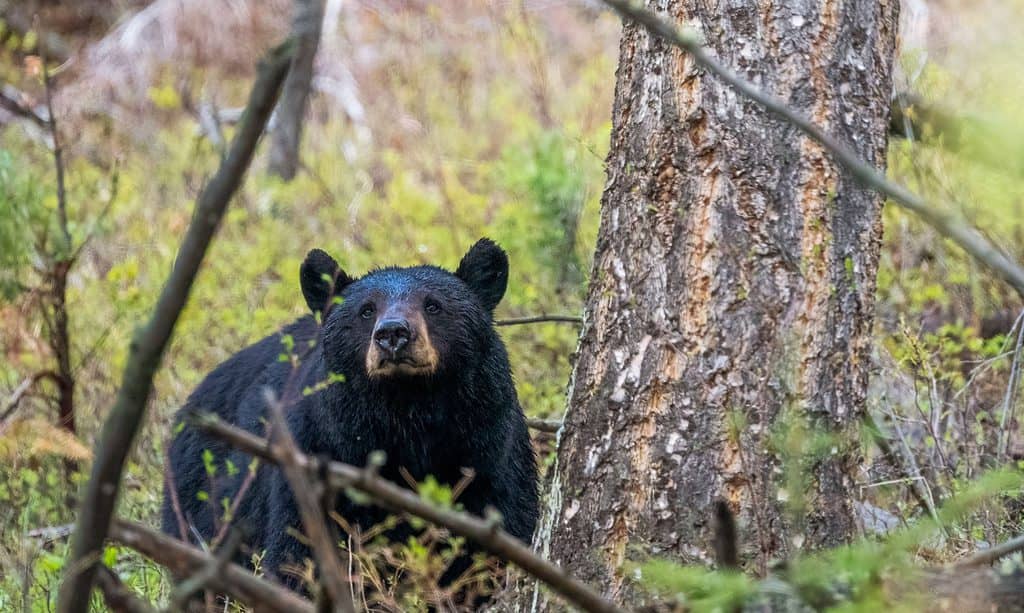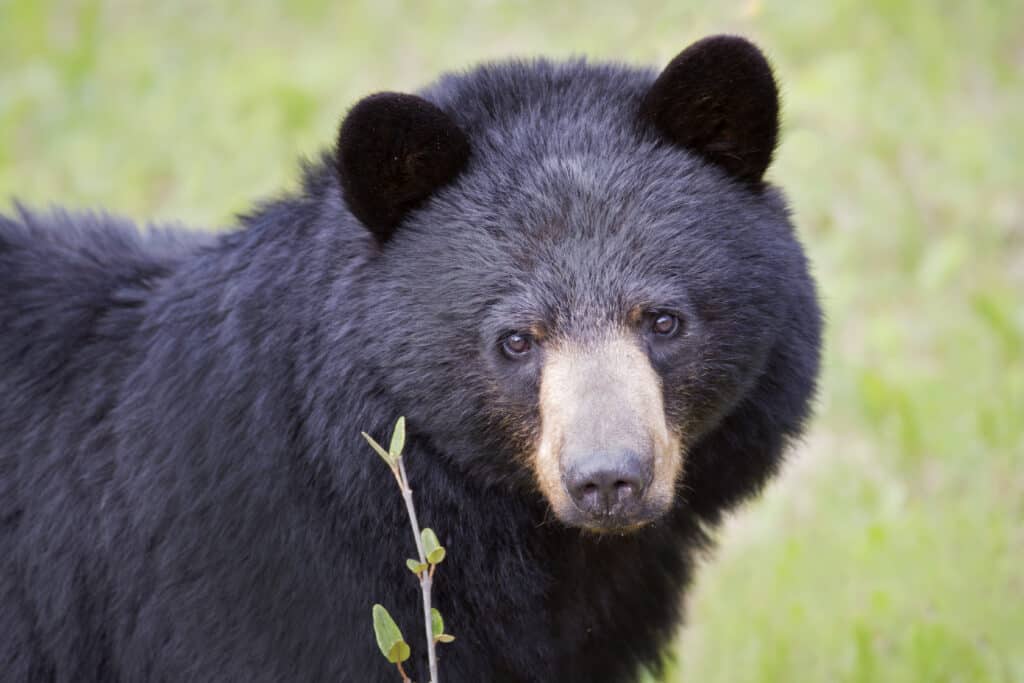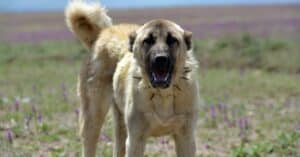The Louisiana black bear gained nationwide recognition when President Teddy Roosevelt famously refused to shoot one tied to a tree during his 1902 hunt. The incident gave rise to the “Teddy bear,” a perennially popular children’s toy. The Louisiana black bear has historically struggled to thrive due to overhunting and habitat loss, though recent years have seen a reversal of its fortunes. Read on to discover the size of some of Louisiana’s black bear catches – whether legal or illegal.
The Largest Bear Ever Caught in Louisiana

It is illegal to hunt Louisiana black bears.
©iStock.com/Wirestock
Because it is currently illegal to hunt Louisiana black bears, few have been caught or killed on record in recent history. For that reason, it’s difficult to determine the largest bear ever caught in Louisiana. However, two hunters made recent news for illegally killing a 250-pound female Louisiana black bear in the state on November 4, 2015. The father-and-son team from New Iberia brought the bear down near the town of Lydia. A judge fined the father, Elie Dupre, and sentenced his 16-year-old son to perform community service.
In April of 2021, the Louisiana Department of Wildlife and Fisheries (LDWF) responded to reports of a 200-pound black bear roaming a Port Allen neighbourhood. The bear was wandering through the streets when a local spotted it. It retreated to a tree where it remained for some time before descending and attempting to escape. LDWF officials were finally able to euthanize the bear, which had become overly habituated.
On November 5, 2022, three hunters from West Feliciana Parish allegedly fatally shot a Louisiana black bear while deer hunting and afterward concealed the body. The LDWF discovered the remains. As of the end of 2022, they were pursuing charges against the two adults and one minor and did not list the bear’s weight.
Black Bear: Types and Appearance
Louisiana is home to the Louisiana black bear (Ursus americanus luteolus), one of 16 subspecies of American black bear (Ursus americanus). This subspecies also historically inhabited parts of eastern Texas and southwest Mississippi. The Louisiana black bear differs from other subspecies in that its skull is narrower, longer, and flatter. Its molar teeth are also proportionately larger. Black bears are the only species of bears in the state.
Louisiana black bears are typically black in color with a yellowish-brown muzzle. However, some individuals sport cinnamon fur. The lower throat and chest occasionally bear a white patch. Adult male Louisiana black bears typically weigh between 300 and 400 pounds, though larger individuals have been known to weigh over 500 pounds. Adult females are significantly smaller, averaging 120 to 200 pounds in weight.
Black Bear Habitat
The Louisiana black bear inhabits almost every parish in Louisiana. However, its numbers are especially concentrated in the forested wetlands of the Mississippi Alluvial Valley. Typical of the American black bear, this subspecies prefers forest habitats with plenty of food sources. In practice, these bears are omnivores, eating everything from vegetation to berries to nuts to insects to other wildlife. With their incredible sense of smell, they are also able to easily locate nearby human food sources.
How Many Black Bears Are There in Louisiana?

The number of black bears in Louisiana ranges between 700 to 1,000.
©Wild Art/Shutterstock.com
Louisiana currently has an estimated 700 to 1,000 black bears. Not only is the Louisiana black bear the state’s official mammal, but it is also a fine example of successful conservation. In 1992, the Fish and Wildlife Service (FWS) listed the subspecies as threatened under the Endangered Species Act. The decision came after overhunting, deforestation, and habitat reduction in the 19th and 20th centuries threatened to wipe out the Louisiana black bear. After years of careful management, the FWS determined that the subspecies had recovered and removed it from the list in 2016.
In general, the American black bear is thriving across North America. The IUCN listed the species as Least Concern in 2016.
Is It Legal to Hunt Bears in Louisiana?
It is illegal to hunt Louisiana black bears as habitat loss still potentially threatens their numbers. For more information on hunting regulations in Louisiana, see the LDWF’s Seasons and Regulations webpage.
Are Black Bears Dangerous?
Although approaching or provoking black bears can be dangerous, attacks are rare, and fatalities even rarer. Less than one person a year dies from black bear attacks across North America. As of 2019, the LDWF had reported no bear attacks on humans in Louisiana. However, potentially dangerous encounters do occur when humans and bears find themselves in close proximity.
Black bears are notoriously curious, especially when it comes to food. Because of this, they will follow the scent of a calorie-dense meal from a distance. Avoid contact with bears by removing food sources from around the home and keeping a safe distance. When hunting, hiking, or camping, be sure to advertise your presence and back slowly away if you find yourself too close to a black bear.
Conclusion
For more information on bears in Louisiana, including how to avoid potential conflicts and safely navigate the wilderness while hunting or camping, check out the LDWF’s Research and Publications webpage.
Up Next:
- Discover the 10 Largest Bears in the World
- Discover the Largest Bear Ever Caught in Georgia
- Discover the Largest Bear Ever Caught in Wyoming
The photo featured at the top of this post is © iStock.com/Mark Lee
Sources
- Louisiana Department of Wildlife and Fisheries (1970) wlf.louisiana.gov/subhome/louisiana-black-bear#:~:text=Louisiana's official state mammal%2C the,most recent conservation success story.
- Louisiana Department of Wildlife and Fisheries (1970) wlf.louisiana.gov/resources/category/black-bear#2
- U.S. Fish & Wildlife Service (1970) fws.gov/species/louisiana-black-bear-ursus-americanus-luteolus
- Louisiana Department of Wildlife and Fisheries (1970) wlf.louisiana.gov/news/agents-cite-two-men-and-a-juvenile-for-illegally-harvesting-a-black-bear-in-west-feliciana-parish
- 64 Parishes (1970) 64parishes.org/entry/teddy-roosevelts-bear-hunt
Thank you for reading! Have some feedback for us? Contact the AZ Animals editorial team.






